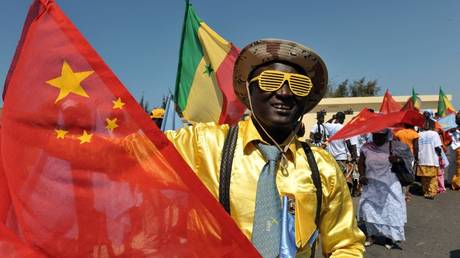The Venezuelan Environmental Tragedy You Don’t Know About
by Luis Miranda, The Sleuth Journal:

(The Real Agenda News) In a country plunged into a deep social, economic and political crisis, little attention has been paid to the mineral exploitation of 111,843 square kilometers.
Venezuela extracts oil since the 1910s, when its exploitation became more profitable than coffee and cocoa.
All national development projects and income depend on energy resources such as oil. But not even oil exploitation resulted in a prosperous nation.
Currently, the deep economic crisis that resulted from government corruption and foreign intervention made the Maduro government diversify its extractive policies as an alternative to obtain high short-term economic income.
In 2016, the government officially opened the Orinoco Mining National Strategic Development Zone (AMO) on a land surface equivalent to 12.2% of the national territory.
The AMO takes on territory on the south bank of the Orinoco River, the country’s main source of water, where 54,686 indigenous people live. In addition to indigenous people, the AMO also occupies land of great ecological biodiversity, a fact that threatens natural habitats.
According to the government, the AMO seeks the extraction and commercialization by national, foreign or mixed capital enterprises, of the minerals of bauxite, coltan, diamonds, gold, iron, copper, kaolin and dolomite throughout the southern margin of the Orinoco River.
Mineral exploitation obtained approval despite the lack of studies of environmental and sociocultural impact in the activities susceptible to generate damages to the ecosystems.
Both articles 129 and 120 of the Venezuelan constitution, make it illegal to exploit minerals anywhere in the country without the realization of a prior, free and informed consultation to the indigenous peoples when natural resources are used in indigenous habitats.
There are many sectors that criticized the project, from indigenous sectors that see their rights affected, to environmental and human rights organizations that raised their voices, trying to prevent the project from being approved.
In this regard, the Indigenous Affairs Working Group of the Universidad de Los Andes and the Peace Laboratory, denounced to the Inter-American Commission on Human Rights (IACHR) the violation of such human rights in the framework of this project.
According to them, violations include the omission of the environmental impact study as well as the right to free, prior and informed consultation; negative impacts on the process of demarcation of indigenous territories; violations of the decree for the rights to freedom of peaceful assembly and association, as well as labor rights and the militarization of the area without making effective consultations with indigenous communities.
Meanwhile, the government of Nicolás Maduro did not listen to the different criticisms made against this project. On the contrary, the different initiatives that alerted about the impact of the project were banned from the national public media system.
In a country plunged into a deep social, economic and political crisis, little attention has been paid to this situation and the mobilization process against the project, which includes academics, environmental activists and human rights activists, indigenous people, musicians and others.
Read More @ TheSleuthJournal.com
Loading...



